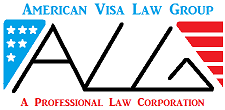Our law firm regularly handles P-1 visa petitions. We provide this guide which goes over typically asked questions such as visa requirements and more.
What is a P-1A Visa and who Qualifies?
click here to read moreThe P-1 visa is a type of visa that allows athletes, artists, and entertainers to work in the United States on a temporary basis. If you’re an individual with extraordinary ability in your field, you may be eligible to apply for a P-1 visa.
To qualify for a P-1 visa, you must demonstrate that you have a high level of achievement in your field and that you’re coming to the United States to perform at a specific event or competition. You must also be sponsored by a U.S. employer or an organization that is involved in the field in which you have exceptional ability.
The U.S. Citizenship and Immigration Services (USCIS) provides detailed information on the eligibility criteria for the P-1 visa, including the types of fields that are eligible, the documentation required, and the application process. Additionally, the Department of State (DOS) provides information on the processing time for P-1 visas and other relevant information for applicants.
To learn more about the P-1 visa and whether you may be eligible, visit the USCIS website at https://www.uscis.gov/working-united-states/temporary-workers/p-1-visa-athletes-entertainers-and-artists or the DOS website at https://travel.state.gov/content/travel/en/us-visas/employment/temporary-worker-visas/p-1.html.
In conclusion, the P-1 visa is a type of visa that allows athletes, artists, and entertainers to work in the United States on a temporary basis. If you have exceptional ability in your field and are looking to perform in the United States, you may be eligible for a P-1 visa. Be sure to visit the USCIS and DOS websites for more information on the eligibility criteria and application process.

P-1 Required Documents
click here to read moreIf you’re applying for a P-1 visa, there are certain required documents that you must submit as part of your application. These documents are important in helping the U.S. Citizenship and Immigration Services (USCIS) determine your eligibility for the visa.
Here’s a checklist of the documents you’ll need to provide when you apply for a P-1 visa:
- P-1 petition: You’ll need to submit a P-1 visa petition to USCIS, along with the required fee. This petition must be filed by your U.S. employer or sponsor and must include evidence of your exceptional ability in your field.
- Proof of your exceptional ability: You’ll need to provide evidence that demonstrates your exceptional ability in your field. This could include documentation such as awards, certificates, and letters from experts in your field.
- Contract or itinerary: You’ll need to provide a written contract or itinerary that shows the nature of the event or competition you’ll be performing in the United States.
- Evidence of your education and work experience: You’ll need to provide documentation of your education and work experience, including transcripts and diplomas.
- Proof of your ability to support yourself: You’ll need to provide evidence that you have the financial means to support yourself while you’re in the United States.
- Passport: You’ll need to submit a copy of your valid passport to USCIS.
This list is not exhaustive and other documents may be required depending on your individual circumstances. For more information on the required documents for a P-1 visa, visit the USCIS website at https://www.uscis.gov/working-united-states/temporary-workers/p-1-visa-athletes-entertainers-and-artists.
In conclusion, if you’re applying for a P-1 visa, it’s important to gather all of the required documents and to make sure that they’re complete and accurate. The USCIS website provides detailed information on the required documents and the application process, so be sure to check it for the most up-to-date information.

Interesting P-1 Visa Statistics and Facts
click here to read moreThe P-1 visa is a type of visa that is specifically designed for athletes, entertainers, and artists who are coming to the United States to perform. This visa is important for bringing top talent to the country and helping to promote cultural exchange. Here are some interesting statistics and facts about the P-1 visa:
- Popular among athletes: The P-1 visa is particularly popular among athletes, with many professional sports teams relying on it to bring in foreign players.
- Cultural exchange: The P-1 visa plays an important role in promoting cultural exchange, as it allows for talented individuals from around the world to come to the United States and perform for audiences here.
- Growing demand: Demand for the P-1 visa has been growing in recent years, as more and more international performers look to come to the United States to showcase their talents.
Unfortunately, there is no record of any US presidents making a statement specifically about the P-1 visa. However, many presidents have spoken generally about the importance of immigration and the contributions that immigrants make to the United States.
In conclusion, the P-1 visa is an important tool for bringing talented individuals to the United States and promoting cultural exchange. If you’re interested in learning more about this visa, you can visit the U.S. Citizenship and Immigration Services (USCIS) website at https://www.uscis.gov/working-united-states/temporary-workers/p-1-visa-athletes-entertainers-and-artists.
Should You Hire an Immigration Lawyer to Prepare Your P-1 Case?
click here to read moreIf you’re an athlete, entertainer, or artist looking to come to the United States on a P-1 visa, it’s important to understand why hiring an immigration lawyer can be so beneficial. Here are some of the key reasons why you should consider working with a P-1 visa law firm:
- Expertise: Immigration lawyers specialize in helping individuals navigate the complex visa process. They understand the requirements of the P-1 visa and can help you to prepare your application so that it has the best chance of being approved.
- Save time: Working with an immigration lawyer can save you a significant amount of time. A lawyer can help you to gather the required documents, complete the application, and ensure that everything is filed correctly.
- Increased success rate: By working with a P-1 visa lawyer, you can increase your chances of success. Lawyers have experience working with USCIS and other government agencies, and they understand what it takes to get a P-1 visa approved.
- Avoid common mistakes: There are many common mistakes that individuals make when applying for a P-1 visa. An immigration lawyer can help you to avoid these mistakes and ensure that your application is processed smoothly and efficiently.
In conclusion, if you’re looking to come to the United States on a P-1 visa, working with a P-1 visa law firm can provide you with numerous benefits. For more information, you can visit the U.S. Citizenship and Immigration Services (USCIS) website at https://www.uscis.gov/working-united-states/temporary-workers/p-1-visa-athletes-entertainers-and-artists.

Reasonable Attorney Fees for an P-1 Petition?
Our firm handles P-1 visa petitions at highly competitive rates. Click here to reach our legal fee schedule.
Contact Us
To discuss P-1 petitions and other types of employment-based petitions with an experienced immigration attorney from the American Visa Law Group, feel free click the contact us tab and fill out the inquiry form or call us at 510-500-1155.
Additional P-1 FAQ
click here to read moreWhat Constraints Come with the P-1 Visa?
P-1 visa petitions require consultation with the relevant labor organization before approval by USCIS. While the flexibility to work for multiple employers exists, each employer must file a separate Form I-129. Dependents are permitted to stay in the U.S. alongside you but are restricted from engaging in employment activities.
What’s the Duration of Stay on a P-1 Visa?
The initial period of stay on a P-1 visa is capped at one year. To further participate, complete an event, competition, or performance, increments of up to five years can be sought. However, the total stay is restricted to 10 years, with additional increments of up to five years permitted to continue or conclude the specific event, competition, or performance.
P Visa vs O Visa – What Sets Them Apart?
An O visa necessitates the individual to showcase extraordinariness in their field. Conversely, the P visa sets a lower eligibility standard, mandating group applicants to demonstrate international recognition and an outstanding reputation. Understanding these distinctions is crucial when determining the most fitting visa category for your unique circumstances.
P1 vs P1A Visa – How Do They Differ?
The P1 Visa encompasses two distinct categories: the P1A Visa designed for internationally recognized individuals or athletic groups, and the P1B Visa tailored for internationally recognized individuals or groups in the field of entertainment. Understanding these specific distinctions is crucial when determining which P1 category aligns with your international recognition status and professional expertise.
How Can I Extend My P1 Visa?
Extending the validity of your P1 visa involves the employer or event organizer initiating the request on your behalf. The process includes filing Form I-129 accompanied by a letter outlining the extension requirements. The employer or event organizer must also file Form I-797. Individuals holding a P-1 visa can potentially extend their stay for up to five years, allowing for continued participation in events or performances.
What Activities Can I Engage in with a P1 Visa?
With a P1 visa, you have the flexibility to perform with an entertainment group, participate in athletic competitions, and engage in any other activity related to your field of expertise. Additionally, P1 visa holders are permitted to undertake part-time study while in the United States, broadening the range of opportunities for personal and professional growth.
Blog Articles
Pending.

